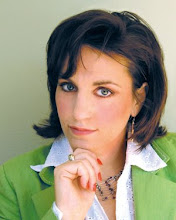Right now, Hurricane Gustav is blowing Baton Rouge, Louisiana — my home town — to tatters. I've managed to get through to several important people either via phone or by text message: my mother and father, who watched as their next door neighbor's 70-foot oak tree smashed its owner's car and utility shed to smithereens; my brother on the other side of town, who said the storm wasn't nearly as big a deal as they'd thought (tell that to his wife, on lock-down at one of the city's largest hospitals); my friend Lynda Danos, who texted me that her family is blessedly alright in their home just outside of Lake Charles.
Lynda and her husband Willie, who until last year raised sugarcane as well as beef cattle on their farm in Iowa, LA, were devastated by Hurricane Katrina as it arrived on the doorstep of sugarcane harvest season. What cane managed to struggle upright again after the rain and wind and wasn't burned by whipping saltwater was almost impossible to harvest because of debris and bottomless muck in the field. I know she, and probably Willie too though he'd never admit it, cried an awful lot in the months following Katrina and her even more devastating, in agricultural terms, sister act Hurricane Rita. Lynda's parents lived with them for weeks as their home was rebuilt — putting off the repairs necessary on the Danos' own (just completed) new home. Financial anxiety preoccupied them well into 2006.
Katrina and Rita — the storms — weren't why my husband and I finally pulled up roots and left Louisiana. Those reasons were both personal and professional. Nevertheless, Louisiana is my home and my heart. And as I've watched a fist of wind and water smash down on my state just as it finally staggered to its knees after the storms of 2005, I feel absolutely helpless. And that makes me crazy. CNN, probably the most responsive news agency in the world, can't update fast enough for me. Looping satellite images of the storm coming onshore make me gnash my teeth. I'm almost relieved that meteorologists are predicting Hurricane Hanna and Tropical Storm (for the moment) Ike will head my way here in Atlanta.
Why? Because I learned close up the stories of the rural victims of Hurricane Rita and, to a lesser degree, Hurricane Katrina. While New Orleans' tragedy transfixed the country, Hurricane Rita swept into Louisiana and inflicted unimaginable damage to the state's agricultural economy and, consequently, producers. Millions of dollars in sugar, seafood, timber and cotton were ruined. Livestock literally blew or floated away, we never could figure out which; whole herds of cattle just...disappeared.
But in those numbers there also were names and outcomes: in agriculture, your money is either in the ground or on the hoof until you take it to market. Which meant that as well as homes and fences, millions of dollars in 2005, 2006, even 2007 income for Louisiana producers blew away in Category 3 winds and torrential rains. Some of the best people in the world got their hats handed to them in less than 24 hours; "Thanks for playing. Sorry, you lose." Mike Danna, an amazing professional photographer and my former boss, took photos — devastating in their immediacy and pain — of people who would likely never recover from the blow.
So again, why am I almost willing those tropical storms in the Atlantic head up the eastern seaboard? I wouldn't wish the same devastation on the producers in my adopted state of Georgia. To be sure, I wouldn't wish it on anyone. But tonight I still can't reach some folks, and I'm anxiously waiting for the Weather Channel to update its report. So I think “Bring it on, Hanna honey. I can take it, but I just don't know how much more those folks in Louisiana can.” Prayers have been joined by tough talk in my head tonight, though I just saw on CNN that bulldozers are already plowing the roads along the coast. Looks like my precious friends are tough enough indeed.

No comments:
Post a Comment